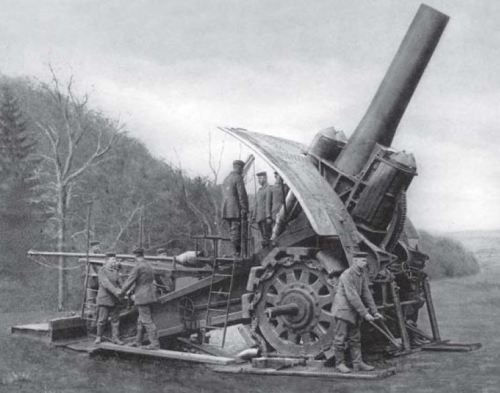16 AUGUST 1914
WESTERN FRONT: The Belgian fortress city of Liège, besieged by the Germans since 6 August, surrenders after an intense bombardment from German heavy artillery.
Liège sat astride the invasion route of the German First Army, which was the unit on the far right of the German line and the one tasked with the objective of sweeping around Paris and enveloping the French left wing. This army, as a result, had the farthest distance to travel, and so speed was essential. Liège was the first roadblock on its path, and, in theory, its twelve forts were a formidable obstacle. The city's defenses and guns, however, were obsolete, and Belgium had woefully neglected its military. After initial attempts to take the city by storm had failed, the Germans reduced the forts to rubble with heavy artillery, including four 305-mm guns from the Bohemian
Škoda works, borrowed from the Austro-Hungarian army, and two 420-mm
"Big Bertha" howitzers from the Krupp works. The Belgian army succeeded in delaying the German advance, but the French, heavily engaged in Lorraine and the Ardennes, did not take advantage of it.
